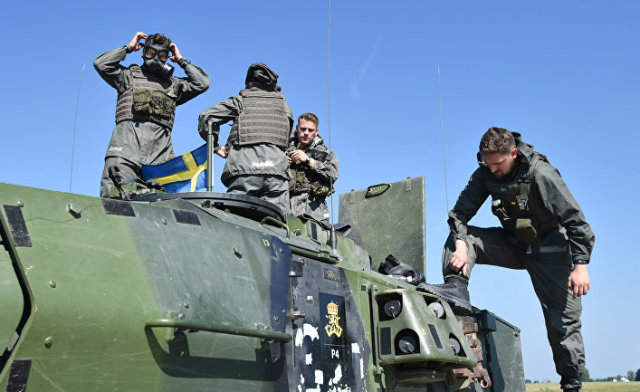Izvestia military columnist Anton Lavrov — about Russia's possible response to Finland and Sweden joining NATO
Joining the now openly hostile military bloc of two previously neutral neighboring states will inevitably change the security situation in the north-west of our country. On May 12, the Russian Foreign Ministry issued an official statement that Russia would be forced to "take retaliatory steps of both military-technical and other nature in order to stop the threats to its national security arising in this regard." However, the Foreign Ministry did not specify what these measures would be.
After joining the NATO bloc, the modest armies and air forces of our neighbors will not be able to significantly strengthen its potential in any way. It will be more dangerous for Russia to use the territory of Finland to deploy bases and military infrastructure of other participating states there. There is no doubt that immediately after the expansion of the bloc, the United States and its closest allies, under the pretext of protecting against the "Russian threat", will actively promote the idea of quartering several of their battalion groups in the same Finland. This has already been done in the Baltic States.
This danger, however, will not require a serious regrouping of the Russian ground forces. Finland and Russia are connected by a few roads of low capacity. Due to the complex nature of the terrain, there are few sites suitable for a land invasion, and they are all well known. It cannot be compared with the huge and almost transparent border with Ukraine.
The density of the grouping of Russian troops in the area of St. Petersburg is already quite large. It was created taking into account the membership of the Baltic states in NATO. Of course, it will be necessary to continue strengthening the Kaliningrad exclave, but the new status of the two Scandinavian states does not radically affect these plans.
Radar surveillance of Finnish airspace will have to be made much more closely. Now it will not be a neutral buffer. Not only manned planes and helicopters will have to be detected and tracked, but also unmanned aerial vehicles. All modern conflicts have demonstrated how dangerous they are.
To control air borders, it will be necessary to improve the air defense radar networks, as well as to build an over-the-horizon radar in the depths of Russia, capable of constantly "keeping an eye" on new NATO members and this area as a whole. Somewhere near St. Petersburg, and then near Murmansk, promising S-500 anti-aircraft missile systems will be faster.
As an asymmetric response, the creation and deployment of a new generation of long-range precision weapons will certainly be funded. It will be useful both to repel possible attacks on Russian territory, and to keep NATO bases and facilities that can be deployed in Finland and Sweden under the gun. First of all, we are talking about air-launched cruise missiles for long-range and tactical aviation. The second is about ground—based missile systems with a range greater than 500 km from the current Iskanders. The conflict with Ukraine has shown what a formidable weapon such ballistic missiles become in skillful hands. In the near future, it is necessary to increase the number of hypersonic non-nuclear missiles that are invulnerable to current air defense systems.
It may require adjusting the placement of Russian aviation. And not necessarily bringing it closer to the borders. It will be necessary to assess whether the current basing facilities will fall within the range of NATO's long-range precision weapons if they are deployed in Finland and Sweden.
The choice of a specific variant of the military-technical response in Russia will be taken up after the exact intentions of Finland and Sweden become known. It is not at all excluded that they will not immediately deploy foreign military contingents on their territory, and will also refuse any demonstrative steps towards military escalation with Russia.
There are examples of such "special relationships". Suffice it to recall France, which is very jealous of the foreign military presence on its territory and does not actively participate in the military structures of the North Atlantic Alliance. One can also recall the special position of Turkey, with which we still have military-technical cooperation no matter what. In such a scenario, the Russian response will be milder than with the full-fledged military development of the territory of these countries.
The leadership of Finland and Sweden cannot fail to understand that the deployment of bases and forces of a bloc hostile to the Russian Federation will not increase the security of once neutral countries, on the contrary, it can turn them into a battlefield in any conflict between Russia and the North Atlantic Alliance. And this obviously will not contribute to the safety of their residents.
Anton Lavrov — military observer of Izvestia
The editorial board's position may not coincide with the author's opinion

